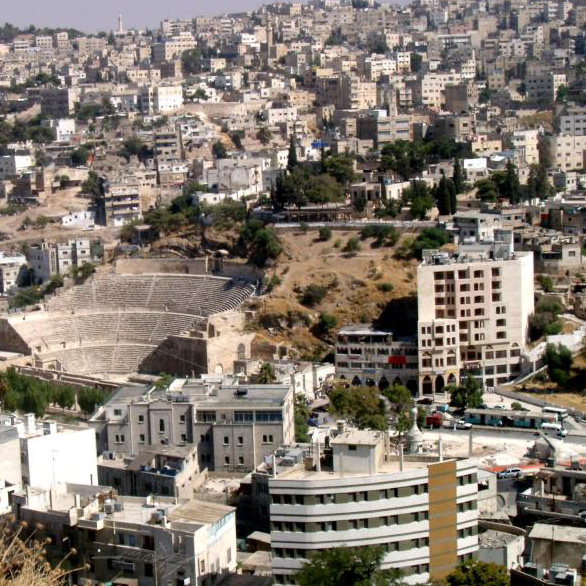Kingdom to expect slow recovery – IMF
By Omar Obeidat
AMMAN –– Limited room for further economic stimulus will hold back the pace of Jordan’s economic recovery, according to the International Monetary Fund (IMF).
In a research workshop held last week at the Central Bank of Jordan (CBJ), IMF experts cited inflationary pressures, high public debt, the budget deficit and a slower economic rebound in the Gulf region as factors hampering a faster recovery in the Kingdom.
In a presentation on the regional economic outlook, IMF Middle East and Central Asia Deputy Director Ratana Sahay and Paul Cashin, adviser at the department and chief of the fund’s mission to Jordan, said obstacles to growth in oil-importing countries included persistent weakness in EU demand, competition from other emerging countries, rising inflation rates and high debt forcing cutbacks in fiscal expansion.
In its report after concluding its visit to the country last week, the IMF mission said economic activity in Jordan is expected to pick up modestly in 2010, as growth revives in key regional trading partners, adding that despite the government’s fiscal consolidation efforts and prudent regulation of the financial sector, policies need to remain focused on guarding against fiscal and external vulnerabilities.
The report elaborated that near-term risks to the economic outlook remain tilted to the downside, given uncertainties regarding world commodity price developments, as well as fragile regional and global economic conditions.
If the economic recovery in the Gulf Cooperation Council (GCC) countries, to which the Jordanian business cycle is closely linked, proves to be slower than anticipated, this may adversely affect external inflows of capital, said the report, which noted that recent economic developments in southern Europe, such as in Greece, will have little impact on Jordan as the European share of Jordanian exports, remittances and tourism receipts is relatively small.
Financial analyst Ali Tabbalat described the IMF’s 3.4 per cent growth forecast for Jordan as somewhat conservative, saying economic growth in the country is mainly related to capital expenditure, which the government has cut sharply.
“Recovery in the Gulf region is also important for Jordan because remittances and investments come mostly from the Gulf states,” he noted, adding, however, that direct investments from the GCC countries flow to the Kingdom when international oil prices surge, which he described as a double-edge effect as it also causes inflation.
The IMF mission report also indicated that while monetary easing in 2009 and 2010 to stimulate domestic demand has been appropriate, there is little room for further monetary stimulus as the interest differential with US rates has fallen and inflationary pressures are emerging.
The fund said the CBJ should continue to stand ready to tighten monetary conditions if inflation accelerates or the percentage of non-performing loans rises, explaining that the recent increases in headline inflation have been largely due to rising international food and energy prices, which are not likely to be driven by excessive domestic demand.
Commenting on the IMF’s recommendations to curb inflation, a government official, who preferred to remain unnamed, said the expected inflation rate by the end of this year is around 5.5 per cent, saying the current figure of 4.9 per cent is reasonable.
Regarding non-performing loans, the official noted although they increased from 4.2 per cent in 2008 to 6.7 per cent in 2009, they will remain below 7 per cent this year even if the percentage increases because banks have become more cautious.
Tayseer Smadi, CEO of the Islamic International Arab Bank and former planning minister, agreed, saying that although credit facilities have increased, banks have also become more conservative in lending.
Commenting on current inflation rates, Smadi said that in light of the economic slowdown resulting from the global downturn, inflation rates are reasonable. He explained that in advanced economies, inflation should always be around 3 per cent in normal economic conditions, but the entire world is witnessing a slowdown in economic activities.
News
23.08.2021
Meeting with King Abdullah II of Jordan
12.06.2019
Cooperation Agreement Signed in Hashemite Kingdom of Jordan
Russian-Arabic Business Council
Всех заинтересованных в установлении и развитии сотрудничества с деловыми кругами стран Арабского Востока приглашаем обратиться в Российско-Арабский Деловой Совет по адресу:
109012 г. Москва, ул.Ильинка, 5/2
тел./факс + 7 (495) 929-02-55
тел. + 7 (495) 929-03-13/15/16
эл.почта: rads@tpprf.ru
сайт: www.rusarabbc.ru







